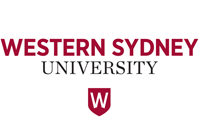Hawkesbury City
Housing loan quartiles
In Hawkesbury City, the 'medium highest group' was the largest quartile, comprising of 30% of households with mortgages in 2021.
Mortgage repayments in Hawkesbury City are directly related to house prices, length of occupancy and the level of equity of home owners. When viewed with Household Income data it may also indicate the level of housing stress in the community.
The quartile method is the most objective method of comparing change in the mortgage payment profile of a community over time.
A detailed explanation of how Housing Loan Repayment quartiles are calculated and interpreted is available in specific data notes.
Please note, interest rates at the 2021 Census were at a record low in Australia. The first interest rate rises by the Reserve Bank began an upward cycle from May 2022. Please use mortgage payment data with caution as data from the 2021 Census pre-dates all official rate rises in the current cycle.
Derived from the Census questions:
'How much does your household pay for this dwelling?' and 'Is this dwelling (owned outright, owned with a mortgage etc.)'
Households with a mortgage
| Housing loan quartiles | ||||||||
|---|---|---|---|---|---|---|---|---|
| Hawkesbury City - Households (Enumerated) | 2021 | 2011 | Change | |||||
| Loan repayment quartile group | Number | % | Western Sydney (LGA) % | Number | % | Western Sydney (LGA) % | 2011 to 2021 | |
| Lowest group | 1,831 | 20.7 | 19.6 | 1,659 | 19.9 | 20.5 | +172 | 34001 |
| Medium lowest | 2,201 | 24.9 | 24.2 | 2,193 | 26.3 | 25.8 | +8 | 34002 |
| Medium highest | 2,633 | 29.8 | 31.2 | 2,512 | 30.1 | 30.1 | +121 | 34003 |
| Highest group | 2,179 | 24.6 | 25.0 | 1,988 | 23.8 | 23.5 | +191 | 34004 |
| Total households with stated mortgage repayments | 8,846 | 100.0 | 100.0 | 8,355 | 100.0 | 100.0 | +491 | |
The Greater Western Sydney Region comprises the following 13 LGA's: Blacktown (C), Blue Mountains (C), Camden (A), Campbelltown (C), Canterbury Bankstown (A), Cumberland (A), Fairfield (C), Hawkesbury (C), Liverpool (C), Parramatta (C), Penrith (C), The Hills Shire (A) and Wollondilly (A).
Source: Australian Bureau of Statistics, Census of Population and Housing (opens a new window) 2011 and 2021. Compiled and presented by .id (opens a new window)(informed decisions).
(Enumerated data)
| Housing loan - Quartile group dollar ranges | ||||||
|---|---|---|---|---|---|---|
| Calculated from loan repayment data for [theQBMQuartile] | Monthly housing loan repayments by Census year | |||||
| Housing loan repayment ranges | 2021 | 2016 | 2011 | 2006 | 2001 | |
| Lowest group | $0 to $1,381 | $0 to $1,263 | $0 to $1,266 | $0 to $993 | $0 to $723 | |
| Medium lowest | $1,382 to $2,123 | $1,264 to $1,989 | $1,267 to $1,995 | $994 to $1,557 | $724 to $1,069 | |
| Medium highest | $2,124 to $3,203 | $1,990 to $2,865 | $1,996 to $2,853 | $1,558 to $2,416 | $1,070 to $1,550 | |
| Highest group | $3,204 and over | $2,866 and over | $2,854 and over | $2,417 and over | $1,551 and over | |

Compiled and presented in profile.id by .id (informed decisions).

Compiled and presented in profile.id by .id (informed decisions).
Dominant groups
Housing loan repayment quartiles allow us to compare relative repayment liabilities across time. Analysis of the distribution of households by housing loan repayment quartiles in Hawkesbury City compared to Western Sydney (LGA) shows that there was a similar proportion of households in the highest repayment quartile, and a larger proportion in the lowest repayment quartile.
Emerging groups
The total number of households with a mortgage in Hawkesbury City decreased by 8,355 between 2011 and 2021. The most significant change in Hawkesbury City during this period was in the highest quartile which showed an increase of 191 households.
